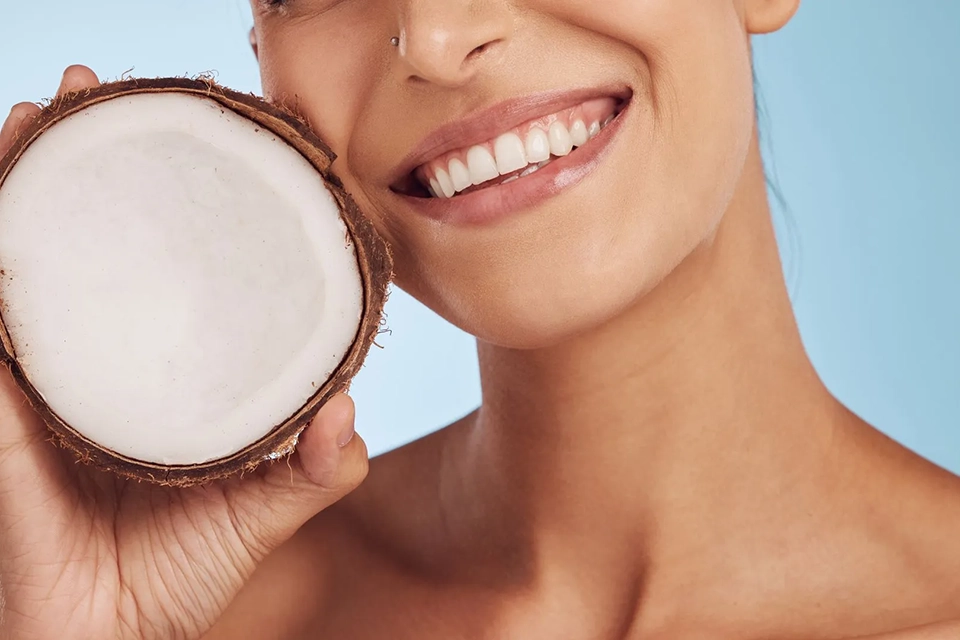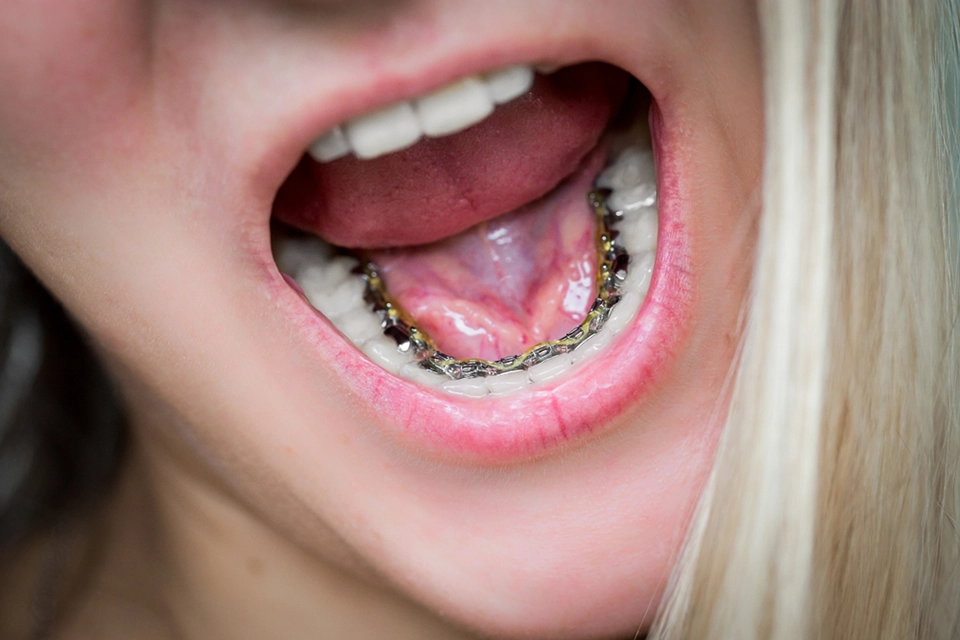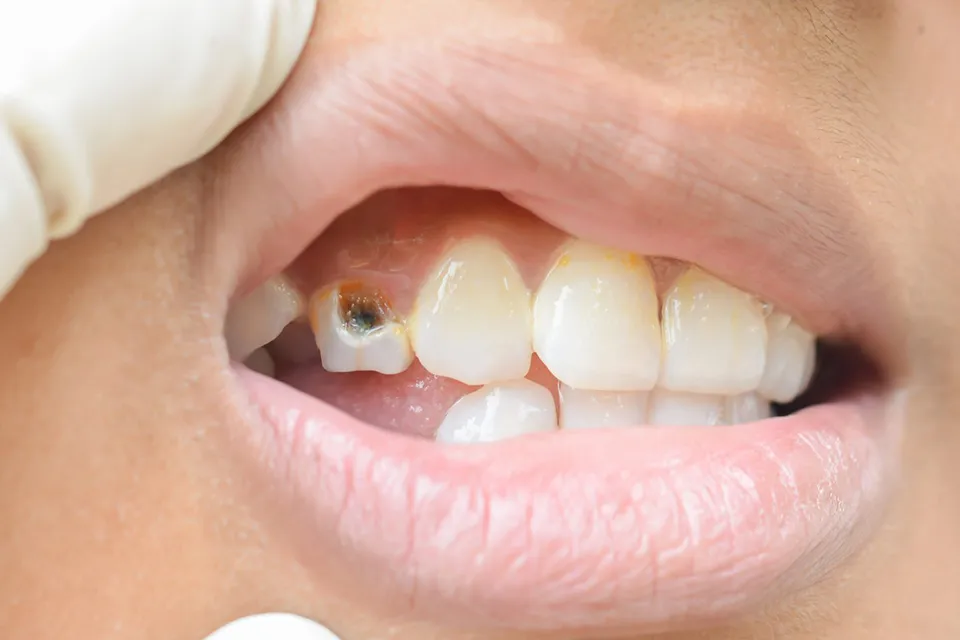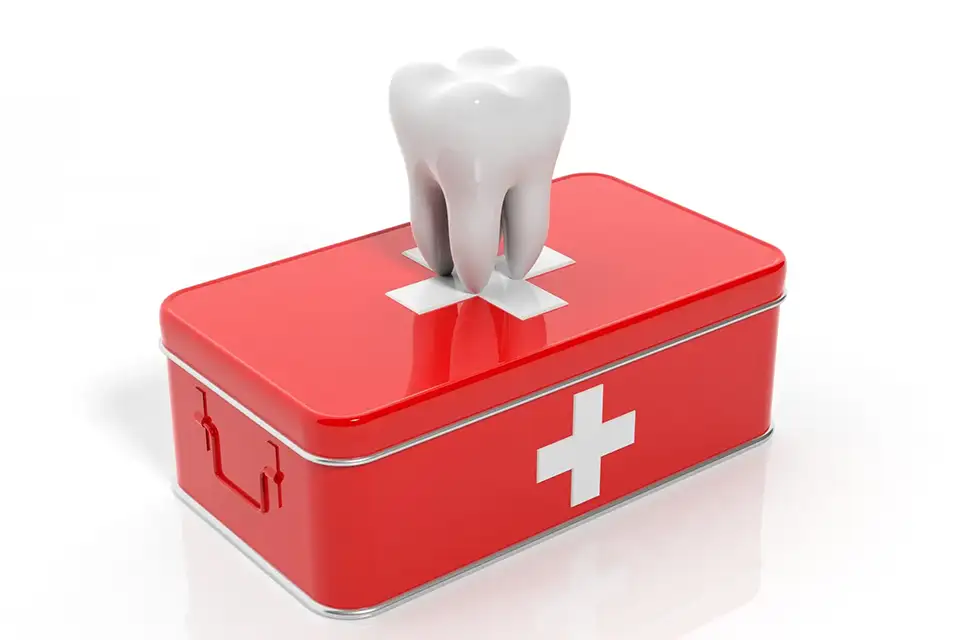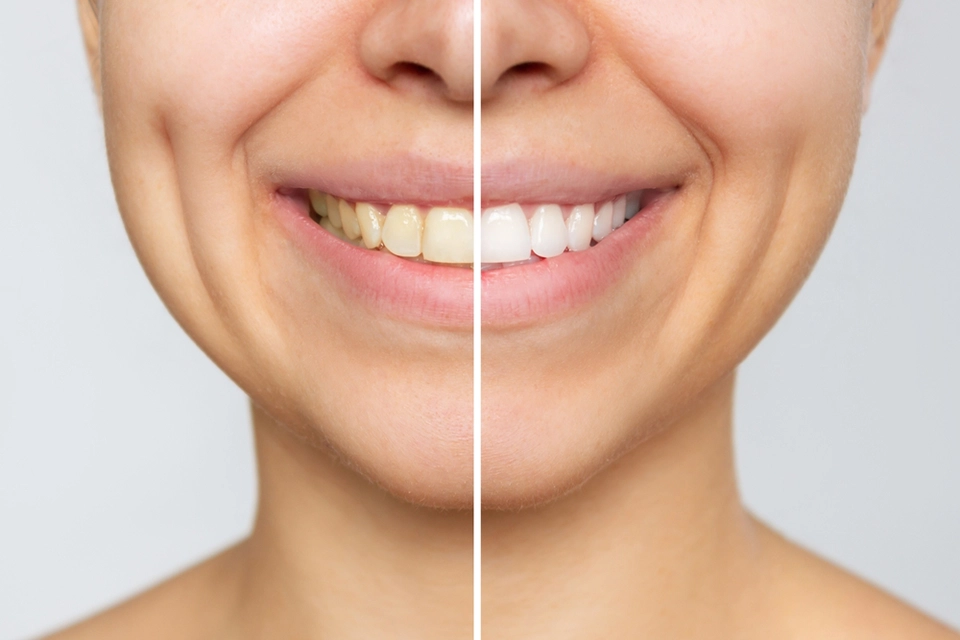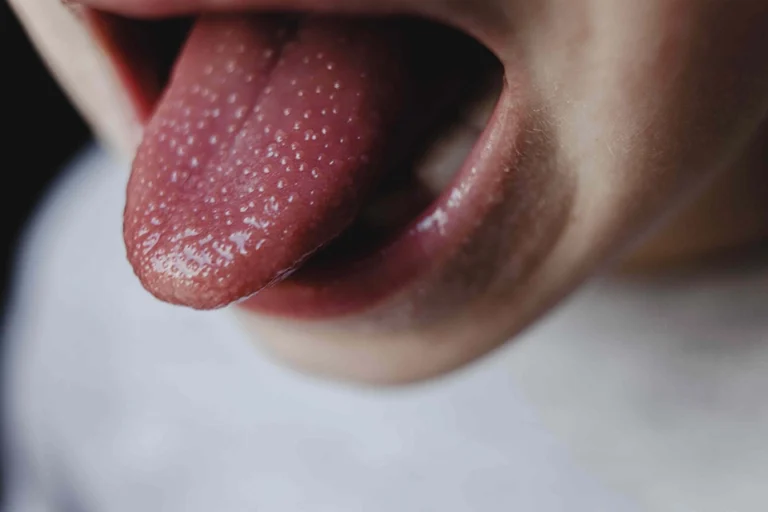A white, bright smile can boost your confidence and appearance, but professional teeth whitening treatments can be expensive and may contain chemicals. Natural teeth whitening methods are becoming increasingly popular among those looking for a gentler, more affordable way to whiten their teeth. This blog delves into the most effective natural whitening methods, their advantages, potential risks, and how to select the best approach for your needs.
What Are the Best Natural Teeth Whitening Methods?
Several natural methods can help you get a whiter smile without using commercial products. Here are some of the best options:
Baking Soda
Baking soda, also known as sodium bicarbonate, is a mild abrasive that can remove surface stains from teeth. It works by removing particles and plaque that can cause discoloration. Baking soda is also alkaline, which helps to neutralize acids in the mouth that cause enamel erosion and yellowing. To use, make a paste with a small amount of water and brush it on gently a few times per week.
Hydrogen Peroxide
Hydrogen peroxide is a natural bleaching agent commonly used in commercial whitening products. It removes stains from teeth by releasing oxygen molecules that penetrate the enamel and lighten discoloration. You can use it as a mouth rinse by combining a small amount of hydrogen peroxide and water or as a brushing paste with baking soda. However, it should be used with caution to prevent tooth sensitivity.
Coconut Oil Pulling
Coconut oil pulling is an ancient Ayurvedic practice in which you swish coconut oil around your mouth for 15-20 minutes. Moreover, coconut oil contains lauric acid, which has antibacterial properties and helps reduce plaque and bacteria that cause yellowing. This technique is gentle on the teeth and gums and may help improve oral health, resulting in a brighter smile over time.
Apple Cider Vinegar
Apple cider vinegar is known for its acidic properties, which can help remove surface stains from teeth. However, due to its acidity, you should use it sparingly to prevent enamel erosion. Dilute apple cider vinegar with water and rinse your mouth for a few seconds several times a week.
Activated Charcoal
Activated charcoal is highly porous and binds to toxins and stains on the teeth, helping to lift them away. It effectively removes surface stains but is abrasive and should be used cautiously to prevent enamel damage. Moreover, it is best used on occasion, brushing gently with a soft toothbrush.
Strawberries
Strawberries contain malic acid, a natural enzyme that can help remove surface stains from teeth. Mixing strawberries with baking soda will result in a natural whitening paste. However, it is best to use this method sparingly to avoid enamel damage because of their acidity.
Lemon and Salt
Lemons contain citric acid, which can help break down stains, whereas salt is a gentle abrasive to remove them. However, due to its high acidity, lemon juice can erode tooth enamel if used excessively. In order to protect your enamel, thoroughly rinse your mouth after using lemon and salt.
Turmeric
Turmeric is widely famous for its anti-inflammatory and antibacterial properties. While turmeric’s bright yellow color may appear counterintuitive, it can help improve oral health and may have mild whitening effects when used as a powder or paste.
Oil Pulling
Oil pulling is a technique that involves swishing oil in the mouth to remove bacteria and improve oral hygiene. This method reduces plaque buildup, making teeth appear whiter over time.
What Are the Benefits of Natural Teeth Whitening?
Natural teeth whitening has several advantages over professional treatments.
Gentle on Teeth and Gums
Most natural methods are less abrasive than commercial products, lowering the risk of gum irritation and enamel wear.
Less Expensive Than Professional Whitening Treatments
Natural whitening methods use inexpensive ingredients such as baking soda, coconut oil, or strawberries, making them affordable.
Can Be Done at Home
You can do these methods in the comfort of your home, eliminating the need for dental appointments.
Can Help Improve Overall Oral Health
Many natural whitening agents, including coconut oil and turmeric, have antibacterial and anti-inflammatory properties that benefit oral health.
Environmentally Friendly
Natural methods often use fewer chemicals and packaging, making them a more sustainable option.
Are There Any Risks to Natural Teeth Whitening?
While natural teeth whitening methods are generally considered safe, there are some risks and considerations to be aware of:
- Tooth Sensitivity: Abrasive methods such as baking soda or hydrogen peroxide can cause tooth sensitivity when used frequently or in high concentrations.
- Scientific Evidence and Safety: While some natural methods are backed by anecdotal evidence, limited scientific research supports their effectiveness. Furthermore, using highly acidic substances such as apple cider vinegar or lemon juice can erode enamel over time, causing potential damage.
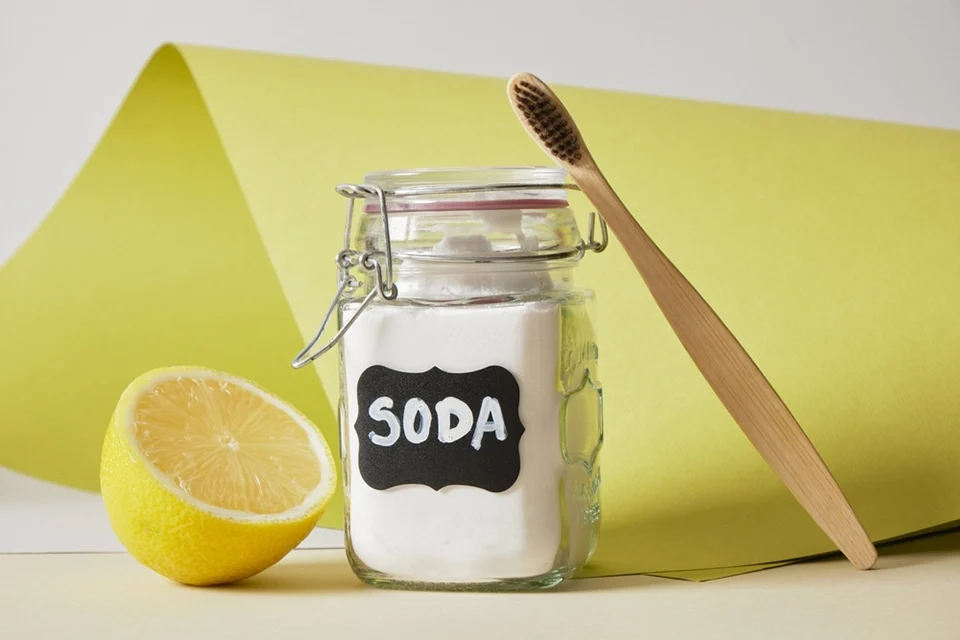
How Can Natural Teeth Whitening Cause Tooth Sensitivity?
Natural teeth whitening methods, including baking soda, hydrogen peroxide, or acidic substances, can result in tooth sensitivity by eroding the teeth’ enamel, the protective outer layer. When enamel becomes thin or damaged, it exposes the underlying dentin, which is more sensitive to temperature and touch. To reduce sensitivity, use gentler methods and avoid excessive use of abrasive or acidic agents.
Can All Stained Teeth Be Whitened?
Not all teeth stains are the same. Surface stains (extrinsic stains) caused by food, beverages, or smoking are more likely to respond to natural whitening techniques. However, deeper, intrinsic stains caused by medication, aging, or trauma may not respond well to natural treatments and may necessitate professional whitening or alternative dental procedures.
Does Natural Teeth Whitening Damage Teeth?
Natural teeth whitening methods are unlikely to cause significant harm when used correctly and in moderation. However, excessive or improper use of certain substances, such as abrasive agents like baking soda or acidic substances like lemon juice, can damage enamel and cause increased sensitivity or decay. It is critical to follow guidelines and use these methods cautiously.
How to Choose the Right Natural Teeth Whitening Method
When selecting a natural teeth whitening method, consider the following strategies.
Consider the Cause of Your Teeth Discoloration
Determine whether your stains are extrinsic (caused by food, beverages, or smoking) or intrinsic (due to medication or other factors). This can assist you in determining the most effective method.
Choose a Method That is Gentle on Your Teeth and Gums
Start with gentler methods, such as coconut oil pulling or strawberries, especially if your teeth are sensitive.
Start with a Low Concentration and Gradually Increase as Needed
To reduce the risk of sensitivity or damage, start with low hydrogen peroxide or baking soda concentrations and gradually increase.
Be Patient and Consistent with Your Treatment
Consistency is essential because natural whitening methods can take longer to produce results. Use them regularly but safely to achieve and maintain your desired level of whiteness.
Frequently Asked Questions About Natural Teeth Whitening
Is natural teeth whitening safe?
Generally, you should do it cautiously to avoid overuse and potential enamel damage.
How long does it take to see results from natural teeth whitening?
Results vary, but you may notice a difference within a few weeks with consistent use.
Can I use multiple natural whitening methods together?
Combining baking soda with coconut oil can enhance results, but avoid combining abrasive or acidic agents.
Understanding these natural methods and their potential benefits and risks will help you make an informed decision about achieving a whiter, brighter smile. Remember, the key is to select a method that meets your needs and to use it consistently and safely.
If you want more personalized advice or a professional opinion on your teeth whitening journey, our team at Zara Dental in Houston, Texas, can help. Please schedule a consultation today to discuss safe and effective whitening options tailored to your needs. Don’t wait—take the first step towards a brighter, more confident smile! Call us today or schedule an appointment online!


